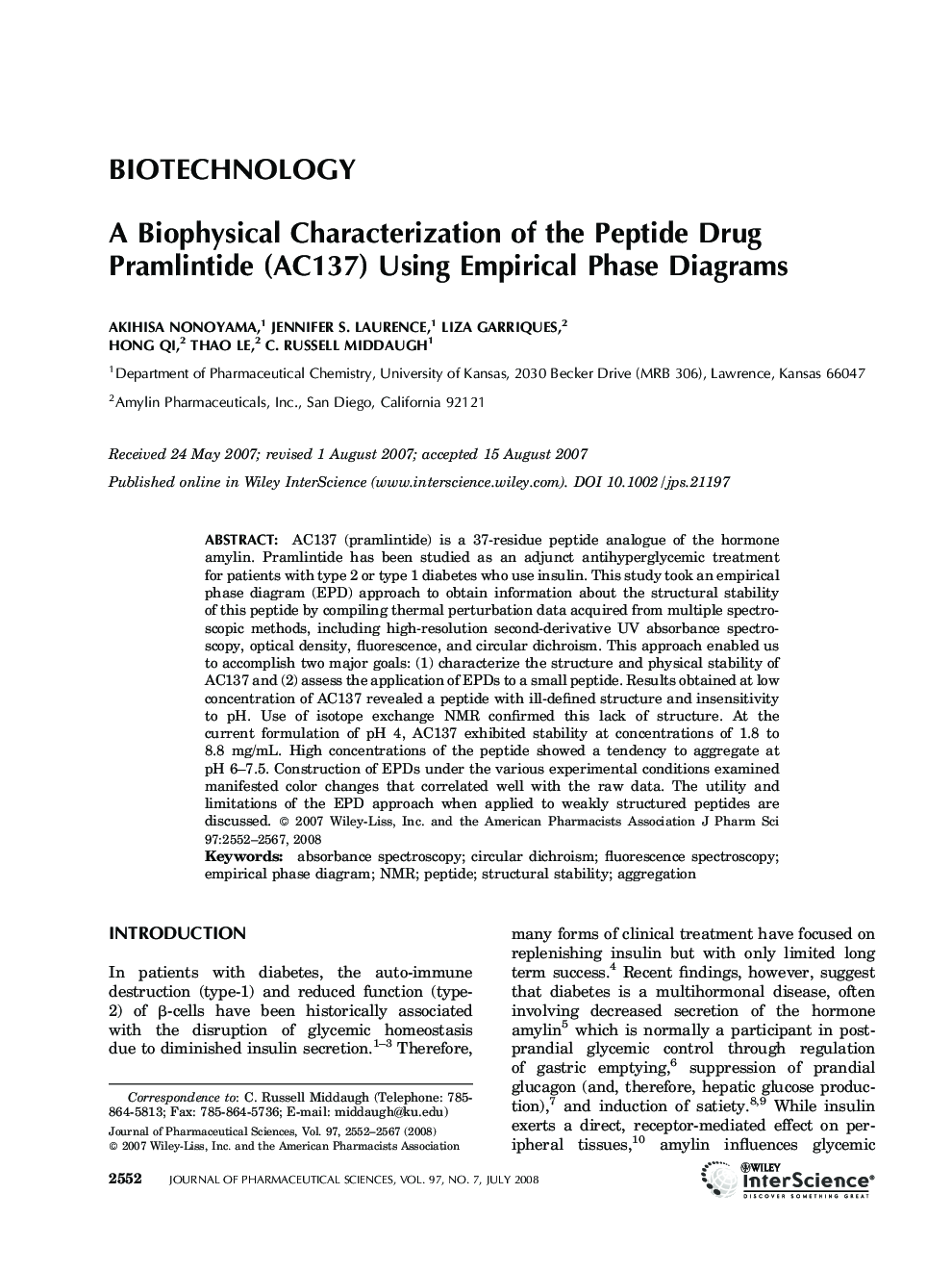| Article ID | Journal | Published Year | Pages | File Type |
|---|---|---|---|---|
| 2485519 | Journal of Pharmaceutical Sciences | 2008 | 16 Pages |
Abstract
AC137 (pramlintide) is a 37-residue peptide analogue of the hormone amylin. Pramlintide has been studied as an adjunct antihyperglycemic treatment for patients with type 2 or type 1 diabetes who use insulin. This study took an empirical phase diagram (EPD) approach to obtain information about the structural stability of this peptide by compiling thermal perturbation data acquired from multiple spectroscopic methods, including high-resolution second-derivative UV absorbance spectroscopy, optical density, fluorescence, and circular dichroism. This approach enabled us to accomplish two major goals: (1) characterize the structure and physical stability of AC137 and (2) assess the application of EPDs to a small peptide. Results obtained at low concentration of AC137 revealed a peptide with ill-defined structure and insensitivity to pH. Use of isotope exchange NMR confirmed this lack of structure. At the current formulation of pH 4, AC137 exhibited stability at concentrations of 1.8 to 8.8Â mg/mL. High concentrations of the peptide showed a tendency to aggregate at pH 6-7.5. Construction of EPDs under the various experimental conditions examined manifested color changes that correlated well with the raw data. The utility and limitations of the EPD approach when applied to weakly structured peptides are discussed. © 2007 Wiley-Liss, Inc. and the American Pharmacists Association J Pharm Sci 97:2552-2567, 2008
Keywords
Related Topics
Health Sciences
Pharmacology, Toxicology and Pharmaceutical Science
Drug Discovery
Authors
Akihisa Nonoyama, Jennifer S. Laurence, Liza Garriques, Hong Qi, Thao Le, C.Russell Middaugh,
